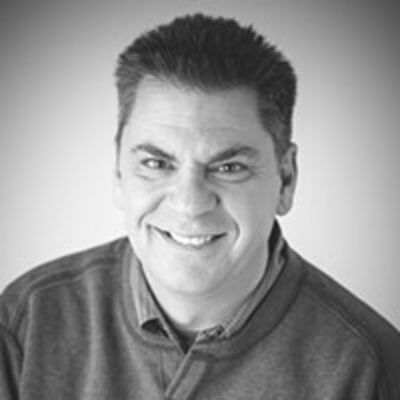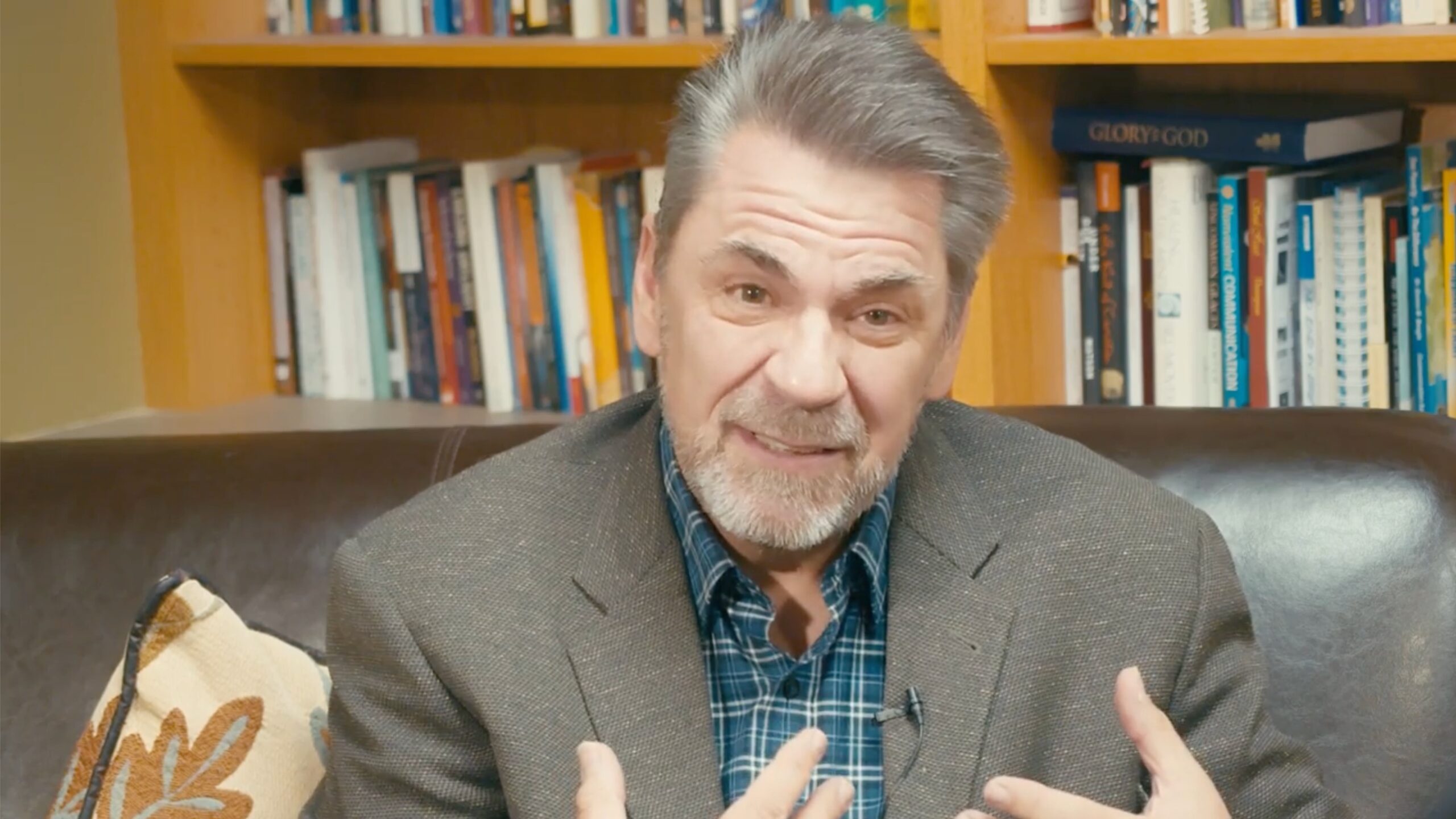Mar 10th: Healing Our Hurt So We Don’t Hurt Others, with Rev. Dr. Steven Koski.
A Part of the Series:
Rev. Dr. Steven Koski
Other Articles in:
WATCH:
Healing Our Hurt So We Don’t Hurt Others with Rev. Dr. Steven Koski. Series: Everyday Peacemakers A Spacious Christianity, First Presbyterian Church of Bend, Oregon. Scripture: John 11.35; Luke 18. 38-42.
You are invited to join us at First Presbyterian Church in Bend and online this Sunday. This week, Rev. Dr. Steven Koski will discuss empathy and care for others and how we can find connection with others in their pain, possibly helping ourselves process our own suffering—experience how God’s healing presence is found when we meet one another with compassion.
Transcript:
Steven: emotional pain impacts the same part of the brain that is impacted when there is physical pain. Our brain actually processes emotional and physical pain the same way. But physical pain we can name you know, except get help, and it heals. We’re not embarrassed to say out loud when we’re, when we’re physically hurting, I’m not ashamed to tell you My knee hurts and you will probably tell me that your knee hurts to emotional pain is a different story. You know, we keep our emotional pain bottled up and hidden from view where we’re likely to avoid, suppress, medicate or deny our emotional pain. You know, during the pandemic we wore masks out in public to prevent the spread of COVID. wearing masks out in public is is no longer a requirement. But my deep concern is how we continue to mask our emotional pain, grief, suffering. I fear that we were in such a hurry to move on from the pandemic that we in our haste, forgot to grieve. We never really really addressed our collective grief and trauma. We forgot to heal our pain. Anxiety and depression are, are the norm. Our youth are in the midst of a mental health crisis. There’s a loneliness epidemic where where people have no one to support them. Gun violence, road rage, bullying, hate crimes, and people just simply being mean and unforgiving, are on the rise. Here’s an important truth. emotional pain that is not healed and transformed, continues to get transmitted. We need to find find ways to to heal our emotional wounds so that we don’t wound others hand ourselves. Parker Palmer said violence, violence to others or violence turn inwards to ourselves is what happens when we don’t know what what else to do with our suffering and grief. I was at a funeral where the minister said there’s there should be no tears today. Because your loved one is in a better place. I wanted to jump out of the pew and show no no, no cry, weep, scream laugh. It all belongs. I mean tears. Tears are holy. For all you Trivia Buffs, what’s the shortest sentence in the Bible? That’s right. Jesus wept when Jesus wept, reminding us that our tears belong. And we’re never alone in our pain and suffering. At that memorial service, we we sing the song, our God is an awesome God. And I really felt for those who are sitting in the pew that day grieving. feeling in that moment. That there God wasn’t so awesome. It felt sad that memorial service wasn’t. It wasn’t a safe place to be honest. And for them to express their emotional pain. friend recently told me that one of the most difficult aspects of her cancer is her family and friends trying to be helpful, encouraging her to, you know, stay positive have faith in her immense guilt at being unable to do so. You know, she said to me, I just want a space where I can be brutally honest, I want a space where I can feel all of the feelings that I’m feeling without feeling the need to apologize or protect others. You know, a healthy spirituality is an honest one. It’s interesting that to say the name of Jesus, in sign language, is to take your right index finger and touch the palm of your left hand and to take your left index finger and touch the palm of your right hand. This is how you say the name of Jesus. In other words, to say the name of Jesus is to touch his wounds. Christianity is the only religion that proof As a God who suffers, we may prefer a God who prevents or explain suffering. The God revealed in Jesus is the one who shares our suffering, the one who weeps with us, the one willing to enter the very depths of hell with us. The one who meets us in our pain, and calls us to meet one another, in our pain. There’s a story in the Bible of the Gospel of Luke where it says, a blind man called out to Jesus, Jesus have mercy on me. Now those around him, rebuked him, tried to shut him up, told him to be quiet. But he shouted all the more Jesus have mercy on me. Jesus stopped, ordered the man to be brought to him. And when he came near, Jesus asked him What do you want me to do for you? The man replied, I want to see. Jesus said to him, receive your sight. Your faith has healed you. Immediately he received his site and follow Jesus praising God. You know that man in that story, just think about it. You just, he showed incredible courage. You know, being willing to be vulnerable, being willing to cry out to Jesus help me and those around, you know, tried to shame him into being silent. In our culture stigmatizes asking for help equating equating vulnerability with weakness. Jesus met the man in his pain and asked, What do you want me to do for you? There was no judgment, there was no shaming, Jesus essentially said, I see you. I see your pain, how can I best love you? You know, those words are a soft blanket to land on when life throws you off the edge. Healing for this man began with one small but life changing word. Help. You know, we try to impress each other with our strengths. And then we wonder why we feel disconnected and lonely. We connect to each other. Through our vulnerability, we connect to each other in that place of pain. Like the man in the story. Our strength is found in the courage to face our pain and to ask for help. Asking for help is not weakness. It’s the desire to be strong. Metal Lindley angle tells a story of a friend who was doing a solo cross country trip in the car driving across country their car, and this was before cell phones and she asked this friend, what if you get lonely? And her friend who was in recovery said, That’s okay. I’ll just find a meeting. And the angle who was an Episcopalian? She mused. I really wonder what would happen if I if I wandered into some strange Episcopalian Church and said I’m lonely? What would people’s response be? You know, it’s not that people who go to Episcopalian churches or Presbyterian Presbyterian churches are less compassionate than people who go to 12 step meetings. I mean, let’s be real. Most of those people are the same people. It’s that too often churches. Even our church First Presbyterian. Too often churches mimic a toxic, addictive, wound denying culture where we silenced the one crying out for help. Rather than being a safe place where we can meet each other in our pain. Rabbi Sharon brouse tells this this beautiful story about what would happen in ancient times when people used to go on pilgrimage to the Temple Mount in Jerusalem. Now imagine if you were to hundreds of 1000s of people making this sacred pilgrimage to Jerusalem. They would ascend the steps of the Temple Mount and they would go through this arched entryway. And then they would turn to the right and circle around the perimeter of the courtyard. And they would then exit essentially right where they had come in. Except for someone who is brokenhearted. The person who has broken hearted would make the pilgrimage to Jerusalem. They too would ascend the steps, they would walk through the arched entryway. But they would turn to the left and not the right like the others. And every single person who would pass them coming from the right, would have to stop and ask a simple question. What happened to you? And the person would say, I’m brokenhearted. my loved one just died. I’m worried about my sick kid. I’m depressed. I grieve the suffering of the innocent children in this world. I just found a lump. In the people who are walking from the right to the left, would have to stop, listen, and offer a blessing before they could continue their pilgrimage. I mean, what profound wisdom in this ancient ritual because if you spent your whole life dreaming of going on the sacred pilgrimage to the holiest prays place for the holiest days, and doing your circle around the courtyard, the last thing in the world you want to do is stop and ask some poor guy who’s coming toward you? Are you okay? What’s your story? Where does it hurt. And yet, the only religious obligation you have that day, central to your own healing is to see this other person in their pain in their suffering. And ask them to tell their story. And then give them a blessing. If you’re the one who’s broken, shattered, I mean, the last thing you want to do is be vulnerable. Last thing you want to do is, is show up in this place with all those people go against the current in such a public and visible way. And yet, that is your religious obligation that day. That is your courageous step towards your own healing. God meets us in that place where we meet each other in our pain. You know, maybe that’s what every worship service needs to be about. I’m really concerned how we continue to mask our emotional pain and grief and suffering. And it’s not just the unresolved grief or the pandemic, it’s, it’s retirement, it’s cancer, it’s death. It’s job loss. It’s divorce, suicide, Children in Crisis, mental illness, war, hate, a democracy in peril, climate change. In in our culture, our culture that tries to shame and it to silence us, when what we really want to do is cry out for help. Is it any wonder that the number of angry emails has increased that our that our patience with each other has diminished? That the need for anxiety medication has skyrocketed, pain that is not transformed. Just keeps getting transmitted. We are in an extended period of difficult change, deep loss. It impacts all of us. So let me be the first to say help I’m hurting you know, it’s been a hard few years and I’m hurting and I know you are too. I just know it. So instead of trying to pretend we aren’t in pain can we meet in that place of pain? Trusting that is precisely where God meets us. The people on the pilgrimage in the temple they knew there was no holier question than what happened to you. Are you okay? And there is no greater obligation or opportunity than being the blessing in the midst of the pain help. I’m hurting How about you


